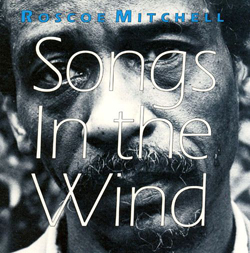
"One of the greatest records to come out of Victo's (the record label of the Victoriaville Festival in Quebec) catalog is this 13-selection set by the Art Ensemble of Chicago multi-instrumentalist Roscoe Mitchell. Issued ion 1991, it co...
In Stock
Quantity in Basket: None
Log In to use our Wish List
Shipping Weight: 5.00 units
EU & UK Customers:
Discogs.com can handle your VAT payments
So please order through Discogs
Sample The Album:
Roscoe Mitchell-tenor saxophone, soprano saxophone, whistle, bells, woodwind, percussion
Richard Davis-bass
Steve Sylvester-bullroarer
Vincent Davis-drums
Vartan Manoogian-violin
Click an artist name above to see in-stock items for that artist.
Label: Les Disques Victo
Catalog ID: VICCD011
Squidco Product Code: 23943
Format: CD
Condition: Sale (New)
Released: 1991
Country: Canada
Packaging: Jewel Case
Recorded at Audio, Ltd., Cross Plains, Wisconsin June 1990 - August 1990 and Wisconsin Public Radio, Madison, Wisconsin, June 1990.
"One of the greatest records to come out of Victo's (the record label of the Victoriaville Festival in Quebec) catalog is this 13-selection set by the Art Ensemble of Chicago multi-instrumentalist Roscoe Mitchell. Issued ion 1991, it covers two separate recording dates from studios in Madison, WI. The reason for its quality is that it appeared during a period in which the Art Ensemble were inactive, and Mitchell himself hadn't recorded in two years. With his Sound Ensemble, Mitchell was a force, always exploring the edges of expression in a group setting. But here, playing solo, duos, and trios, Mitchell reached deep inside himself in a way he hadn't since recording for Chuck Nessa's Nessa label in the late '70s. His solo pieces on soprano saxophone were re-examining the various textures and atmospheres the horn was capable of revealing for its limited tonal range. In duos with both Vincent Davis and Steve Sylvester, Mitchell brought out the majority of the woodwind family to holdtheir own against "Bull Roarers and Wind Wands." In trios with either Richard Davis on bass or Vartan Manoogian on violin, Mitchell added percussion to his arsenal. And the point of it all was simple: He was restless for a kind of musical contact that would examine his chosen instruments in settings where sonic possibility and tonal architecture were one and the same. Through overtones, and micro and polytonalities, Mitchell was seeking, looking relentlessly through the framework of spatial relationship and a stretched notion of time to find something he knew he was looking for, but couldn't put his finger on. These are mostly minimal pieces -- lots of empty space between phrases and single notes, scratched surfaces, and ungodly sounds at times, but assembled, these 13 tracks are a work of great beauty, true virtuoso invention, and yes, heart, great heart."-Thom Jurek, All Music
Artist Biographies
• Show Bio for Roscoe Mitchell "Roscoe Mitchell (born August 3, 1940) is an American composer, jazz instrumentalist, and educator, known for being "a technically superb - if idiosyncratic - saxophonist." The Penguin Guide to Jazz described him as "one of the key figures" in avant-garde jazz; All About Jazz states that he has been "at the forefront of modern music" for the past 35 years. Critic Jon Pareles in The New York Times has mentioned that Mitchell "qualifies as an iconoclast." In addition to his own work as a bandleader, Mitchell is known for cofounding the Art Ensemble of Chicago and the Association for the Advancement of Creative Musicians (AACM). Mitchell was born in Chicago, Illinois. He also grew up in the Chicago area, where he played saxophone and clarinet at around age twelve. His family was always involved in music with many different styles playing in the house when he was a child as well as having a secular music background. His brother, Norman, in particular was the one who introduced Mitchell to jazz. While attending Englewood High School in Chicago, he furthered his study of the clarinet. In the 1950s, he joined the United States Army, during which time he was stationed in Heidelberg, Germany and played in a band with fellow saxophonists Albert Ayler and Rubin Cooper, the latter of which Mitchell commented "took me under his wing and taught me a lot of stuff." He also studied under the first clarinetist of the Heidelberg Symphony while in Germany. Mitchell returned to the United States in the early 1960s, relocated to the Chicago area, and performed in a band with Wilson Junior College undergraduates Malachi Favors (bass), Joseph Jarman, Henry Threadgill, and Anthony Braxton (all saxophonists). Mitchell also studied with Muhal Richard Abrams and played in his band, the Muhal Richard Abrams' Experimental Band, starting in 1961. In 1965, Mitchell was one of the first members of the non-profit organization Association for the Advancement of Creative Musicians (AACM) along with Jodie Christian (piano), Steve McCall (drums), and Phil Cohran (composer). The following year Mitchell, Lester Bowie (trumpet), Kalaparusha Maurice McIntyre (tenor saxophone), Favors, Lester Lashley (trombone), and Alvin Fielder (drums), recorded their first studio album, Sound. The album was "a departure from the more extroverted work of the New York-based free jazz players" due in part to the band recording with "unorthodox devices" such as toys and bicycle horns. From 1967 Mitchell, Bowie, Favors and, on occasion, Jarman performed as the Roscoe Mitchell Art Ensemble, then the Art Ensemble, and finally in 1969 were billed as the Art Ensemble of Chicago. The group included Phillip Wilson on drums for short span before he joined Paul Butterfield's band. The group lived and performed in Europe from 1969 to 1971, though they arrived without any percussionist after Wilson left. To fill the void, Mitchell commented that they "evolved into doing percussion ourselves." The band did eventually get a percussionist, Don Moye, who Mitchell had played with before and was living in Europe at that time. For performances, the band often wore brilliant African costumes and painted their faces. The Art Ensemble of Chicago have been described as becoming "possibly the most highly acclaimed jazz band" in the 1970s and 1980s. Mitchell and the others returned to the States in 1971. After having been back in Chicago for three years, Mitchell then established the Creative Arts Collective (CAC) in 1974 that had a similar musical aesthetic to the AACM. The group was based in East Lansing, Michigan and frequently performed in auditoriums at Michigan State University. Mitchell also formed the Sound Ensemble in the early 1970s, an "outgrowth of the CAC" in his words, that consisted mainly of Mitchell, Hugh Ragin, Jaribu Shahid, Tani Tabbal, and Spencer Barefield. In the 1990s, Mitchell started to experiment in classical music with such composers/artists such as Pauline Oliveros, Thomas Buckner, and Borah Bergman, the latter two of which formed a trio with Mitchell called Trio Space. Buckner was also part of another group with Mitchell and Gerald Oshita called Space in the late 1990s. He then conceived the Note Factory in 1992 with various old and new collaborators as another evolution of the Sound Ensemble. He lived in the area of Madison, Wisconsin and performed with a re-assembled Art Ensemble of Chicago. In 1999, the band was hit hard with the death of Bowie, but Mitchell fought off the urge to recast his position in the group, stating simply "You can't do that" in an interview with Allaboutjazz.com editor-in-chief Fred Jung. The band continued on despite the loss. Mitchell has made a point of working with younger musicians in various ensembles and combinations, many of whom were not yet born when the first Art Ensemble recordings were made. Mainly from Chicago, these players include trumpeter Corey Wilkes, bassist Karl E. H. Seigfried, and drummer Isaiah Spencer. In 2007, Mitchell was named Darius Milhaud Chair of Composition at Mills College in Oakland, California, where he currently lives. Mitchell was chosen by Jeff Mangum of Neutral Milk Hotel to perform at the All Tomorrow's Parties festival in March 2012 in Minehead, England." ^ Hide Bio for Roscoe Mitchell • Show Bio for Richard Davis "Richard Davis is an international performing musician and Professor of Bass (European Classicaland Jazz), Jazz History and combo improvisation at the University of Wisconsin-Madison. Chicagoborn, he came to the UW-Madison in 1977 after spending 23 years in New York City establishinghimself as one of the world's premier bass players. Downbeat International Critics Poll named himBest Bassist from 1967-74. He has recorded a dozen albums as a leader and 3000 recordings andjingles as a sideman. His performance/recording credits include Sarah Vaughan, Eric Dolphy, DonSebesky, Oliver Nelson, Bruce Springsteen, Van Morrison, Frank Sinatra, Barbra Streisand, MilesDavis, Thad Jones/Mel Lewis Band, Dexter Gordon, Ahmad Jamal and a host of other notables.Mr. Davis is equally at home in the world of euro classical music, having played under the batons ofGeorge Szell, Leopold Stokowski, Igor Stravinsky, Pierre Boulez, Gunther Schuller, and LeonardBernstein. His great versatility as a bassist keeps him in constant demand for worldwide concertappearances. For nearly fifty years he has drawn enthusiastic audiences in Japan, Europe, Russia,South America, Puerto Rico, Cuba, The West Indies, Hong Kong , Israel and United States. His mostrecent CD release (May 2000) , The Bassists: Homage to Diversity (King Records) was recorded inJapan. This CD was inspired by experiences related to diversity dialogue. His second CD with King records So In Love was assembled with the idea of embracing the oneness of humankind. In 1993, he founded the Richard Davis Foundation for Young Bassists, Inc. which annually brings in 17 masterful bass instructors/performers to teach young bassists ages 3-18.In 1998 he created the Retention Action Project (R.A.P.) focused on open dialogues in subjects that educate all of us to multicultural differences. R.A.P. collaborated with Vice Chancellor Paul W. Barrows (student affairs) and Seema Kapani, Diversity Education Coordinator/Trainer (Equity and Diversity Resourse Center).He has been instrumental in bringing to the UW campus renowned speakers and social change activists such as Peggy McIntosh, Jane Elliott, Francie Kendall, Nathan Rutstein, Victor Lewis, Hugh Vasquez (Color of Fear, Stir Fry Productions,1994) and Allan G. Johnson (Gender Knot). Prof. Davis is devoted to equity issues and shares freely his wisdom, home, and resources with one and all to help create an environment where all can experience dignity and peace. He has also initiated a chapter in Madison of the "Institutes for the Healing of Racism, Inc." Prof. Davis has received honorary doctorate degrees in Musical Arts and Humane Letters, and the Hilldale Award for distinguished teaching from former Chancellor Donna Shalala, and a honorary doctorate of Humane Letters from Edgewood College, Madison, in 1998. In 2000 he received the Manfred E. Swarsensky Humanitarian Award from the Rotary Club Of Madison. In 2001 he received the Governor's of Wisconsin Arts Award. The Reverend Dr. Martin Luther King, Jr. Humanitarian Award, bestowed annually by the City of Madison, was presented to Dr. Richard Davis by Mayor Susan J.M. Bauman during the 18th Annual City-County Observance of Dr. King's birth at the Madison Civic Center, on Monday, January, 2003. (Interview) In 2008, Richard Davis received the MAMA (Madison Area Music Award Michael St. John Lifetime Achievement Award, Human Rights Award (Rev.James C. Wright), "FIGS" 2008 First Interest Group Students (Freshman Year), the TRIO award/first in family to go to College/Awarded by Caroline McCormack. In 2009 he received the Exceptional Service Award University of Wisconsin-Madison 2009 (Gary Sandefur, Dean), and the Spencer Tracy Award for Distinction in the Performing Arts (Wisconsin Historical Society)." ^ Hide Bio for Richard Davis
5/5/2025
Have a better biography or biography source? Please Contact Us so that we can update this biography.
5/5/2025
Have a better biography or biography source? Please Contact Us so that we can update this biography.
Track Listing:
1. Rapid Transmission 3:03
2. Silver Shadows 3:43
3. Purple Landscapes 8:31
4. The Sunday Driver 4:06
5. The Dance Is For Steve Mccall 5:46
6. Roses For Roseanne 2:00
7. Sunlight On Ice 3:15
8. Songs In The Wind, Part I 3:19
9. Hopscotch 2:06
10. Songs In The Wind, Part II 5:39
11. Reflections 2:36
12. With Bells On 6:06
13. Objects On The Expressway 2:17
May 2017
Victo
Improvised Music
Free Improvisation
Jazz
Chicago Jazz & Improvisation
Quintet Recordings
Search for other titles on the label:
Les Disques Victo.




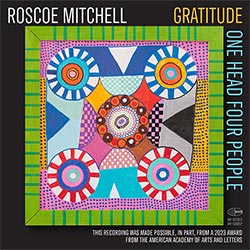

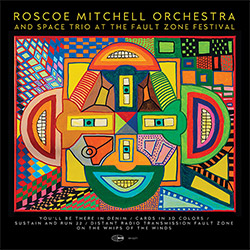
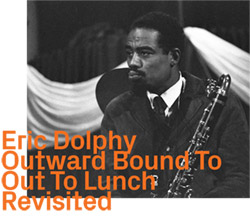

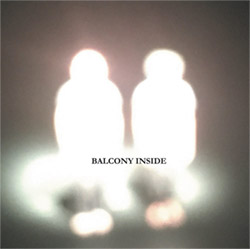



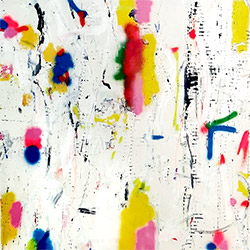
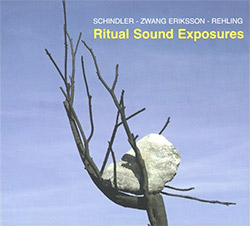
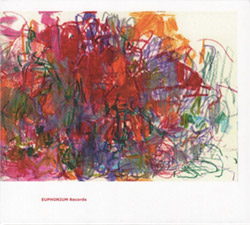
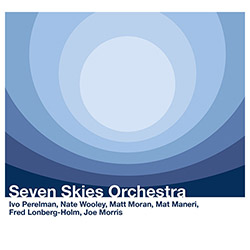
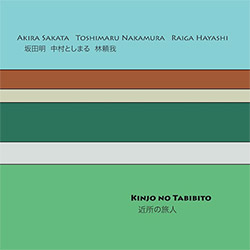
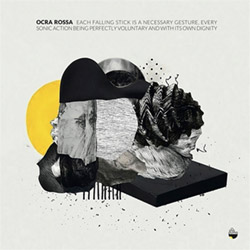
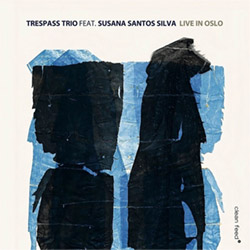
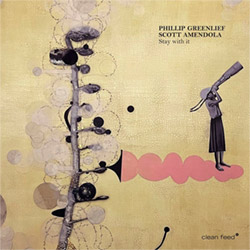


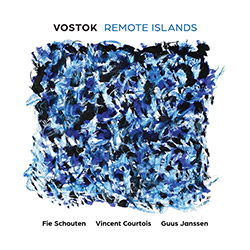



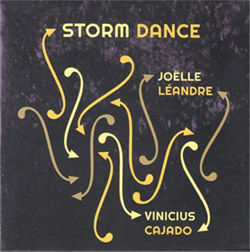











![Deupree, Jerome / Sylvie Courvoisier / Lester St. Louis / Joe Morris: Canyon [2 CDs]](https://www.teuthida.com/productImages/misc4/36404.jpg)


![Eternities: Rides Again [CASSETTE]](https://www.teuthida.com/productImages/misc4/36247.jpg)

![Lopez, Francisco: Untitled (2021-2022) [2 CDs]](https://www.teuthida.com/productImages/misc4/36438.jpg)




![Eventless Plot | Haarvol: The Subliminal Paths [CASSETTE + DOWNLOAD]](https://www.teuthida.com/productImages/misc4/36232.jpg)












![Eventless Plot | Francesco Covarino: Methexis [CASSETTE + DOWNLOAD]](https://www.teuthida.com/productImages/misc4/36231.jpg)



![Das B (Mazen Kerbaj / Mike Majkowski / Magda Mayas / Tony Buck): Love [VINYL]](https://www.teuthida.com/productImages/misc4/36329.jpg)



![Hemphill Stringtet, The: Plays the Music of Julius Hemphill [VINYL]](https://www.teuthida.com/productImages/misc4/36409.jpg)



![Halvorson, Mary Septet: Illusionary Sea [2 LPS]](https://www.teuthida.com/productImages/misc4/17952.jpg)






![Money : Money 2 [2 CDs]](https://www.teuthida.com/productImages/misc4/35894.jpg)




![Klinga, Erik: Elusive Shimmer [VINYL]](https://www.teuthida.com/productImages/misc4/36258.jpg)
![CHANGES TO blind (Phil Zampino): Volume 9 - I Wave on a Fine Vile Mist [CD + DOWNLOAD]](https://www.teuthida.com/productImages/misc4/36061.jpg)

![Wallmart / Rubbish: Asset Protection [split CD]](https://www.teuthida.com/productImages/misc4/35900.jpg)


![+Dog+: The Family Music Book Vol. 5 [2 CDs]](https://www.teuthida.com/productImages/misc4/35897.jpg)
![Kuvveti, Deli : Kuslar Soyledi [CASSETTE w/ DOWNLOAD]](https://www.teuthida.com/productImages/misc4/36107.jpg)

![Nakayama, Tetsuya: Edo Wan [CASSETTE w/ DOWNLOAD]](https://www.teuthida.com/productImages/misc4/36105.jpg)




![Yiyuan, Liang / Li Daiguo: Sonic Talismans [VINYL]](https://www.teuthida.com/productImages/misc4/35957.jpg)
![Brown, Dan / Dan Reynolds: Live At The Grange Hall [unauthorized][CASSETTE]](https://www.teuthida.com/productImages/misc4/36245.jpg)








![Palestine, Charlemagne / Seppe Gebruers: Beyondddddd The Notessssss [VINYL]](https://www.teuthida.com/productImages/misc4/36206.jpg)
![Palestine, Charlemagne / Seppe Gebruers: Beyondddddd The Notessssss [NEON GREEN VINYL]](https://www.teuthida.com/productImages/misc4/36207.jpg)

![Laubrock, Ingrid: Purposing The Air [2 CDs]](https://www.teuthida.com/productImages/misc4/35639.jpg)

![Yoko, Ono / The Great Learning Orchestra: Selected Recordings From Grapefruit [2 CDs]](https://www.teuthida.com/productImages/misc4/35841.jpg)









![Zorn, John / JACK Quartet: The Complete String Quartets [2 CDs]](https://www.teuthida.com/productImages/misc4/35609.jpg)

![Lonsdale, Eden: Dawnings [2 CDs]](https://www.teuthida.com/productImages/misc4/35480.jpg)



![Sorry For Laughing (G. Whitlow / M. Bates / Dave-Id / E. Ka-Spel): Rain Flowers [2 CDS]](https://www.teuthida.com/productImages/misc4/35985.jpg)

![Rolando, Tommaso / Andy Moor : Biscotti [CASSETTE w/ DOWNLOADS]](https://www.teuthida.com/productImages/misc4/36106.jpg)


![Electric Bird Noise / Derek Roddy: 8-10-22 [CD EP]](https://www.teuthida.com/productImages/misc4/35970.jpg)








![Elephant9 : Mythical River [VINYL]](https://www.teuthida.com/productImages/misc4/34624.jpg)



![Elephant9 with Terje Rypdal: Catching Fire [VINYL 2 LPs]](https://www.teuthida.com/productImages/misc4/35355.jpg)
![Deerlady (Obomsawin, Mali / Magdalena Abrego): Greatest Hits [VINYL]](https://www.teuthida.com/productImages/misc4/34876.jpg)







![Surplus 1980: Illusion of Consistency [CD]](https://www.teuthida.com/productImages/misc4/35069.jpg)
![Staiano, Moe: Away Towards the Light [VINYL + DOWNLOAD]](https://www.teuthida.com/productImages/misc4/35037.jpg)
![Coley, Byron: Dating Tips for Touring Bands [VINYL]](https://www.teuthida.com/productImages/misc4/17906.jpg)

![Lost Kisses: My Life is Sad & Funny [DVD]](https://www.teuthida.com/productImages/misc4/lostKissesDVD.jpg)